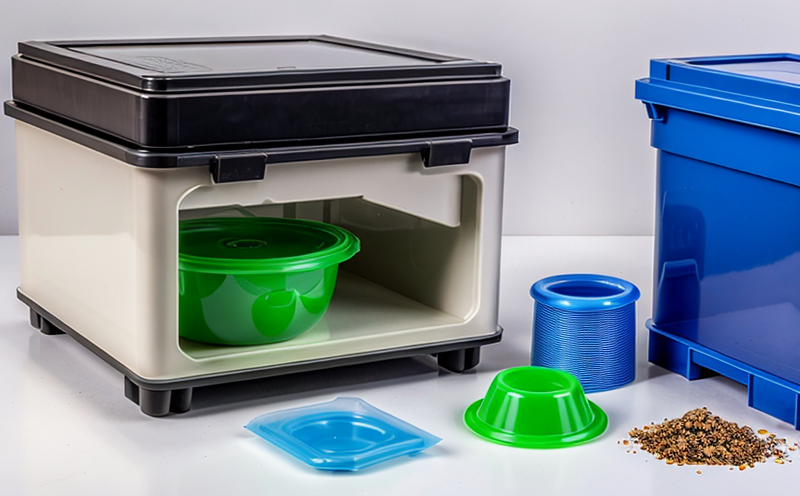ASTM D5511 Anaerobic Biodegradation Testing of Plastics
The ASTM D5511 standard test method is a critical tool for evaluating the anaerobic biodegradability of plastics. This process assesses how rapidly a plastic can be broken down by microorganisms in an oxygen-free environment, which is particularly useful for understanding the environmental impact of packaging materials.
The testing procedure involves inoculating a prepared specimen with microorganisms that thrive under anaerobic conditions and monitoring changes over time. The rate at which the plastic breaks down is quantified using weight loss or carbon dioxide production as indicators. This method ensures compliance with environmental regulations and supports sustainable product development.
Compliance with ASTM D5511 is essential for manufacturers of biodegradable plastics, especially those targeting markets that prioritize eco-friendly packaging solutions. The test results provide valuable insights into the degradation potential of various materials, helping companies make informed decisions about material selection and formulation.
The process begins by selecting appropriate specimens representative of the plastic being tested. These specimens are then subjected to controlled anaerobic conditions where they interact with a defined microbial consortium over a specified period. Throughout this period, detailed measurements are taken to assess any changes in mass or gas production. At the end of the test cycle, comprehensive reports are generated detailing the extent and manner of biodegradation.
Understanding the results from ASTM D5511 testing is crucial for several stakeholders including regulatory bodies, manufacturers, and consumers alike. For instance, regulators use these findings to enforce standards that promote environmental friendliness. Manufacturers gain actionable data to improve their products’ sustainability credentials while also ensuring they meet certification requirements. Consumers benefit indirectly by supporting brands committed to responsible environmental practices.
It's worth noting that ASTM D5511 testing is not just confined to academic research but finds practical applications across various industries such as agriculture, food packaging, and medical devices where biodegradability plays a significant role in reducing waste. By adopting this standard, companies can ensure their innovations contribute positively towards global sustainability goals.
Applied Standards
| Standard | Description |
|---|---|
| ASTM D5511-04(2019) | This standard specifies the procedure for determining anaerobic biodegradation in composting conditions using dynamic respiration measurement. |
| ISO 17583 | Another international standard that provides methods for assessing aerobic and/or anaerobic composting stability of organic substances intended for use as a soil conditioner or fertilizer. |
Environmental and Sustainability Contributions
The implementation of ASTM D5511 testing contributes significantly to environmental sustainability efforts. By accurately measuring the biodegradability of plastics in anaerobic conditions, this method helps identify materials that perform well under these specific circumstances. This information is invaluable for guiding sustainable practices within manufacturing processes.
Manufacturers can leverage ASTM D5511 results to develop products that align with environmental policies and consumer expectations regarding eco-friendliness. The availability of such data also facilitates better communication between businesses and their stakeholders about the lifecycle impacts of different materials used in production.
Furthermore, compliance with standards like ASTM D5511 fosters innovation within industries by encouraging research into more sustainable alternatives for traditional non-biodegradable plastics. As awareness grows around environmental issues related to plastic waste, companies that adopt rigorous testing protocols stand out as leaders committed to addressing these challenges.
Competitive Advantage and Market Impact
- Ensures compliance with regulatory requirements for biodegradable plastics.
- Enhances reputation among environmentally conscious consumers.
- Promotes brand loyalty through transparent sustainability initiatives.
- Facilitates entry into niche markets focused on sustainable products.





